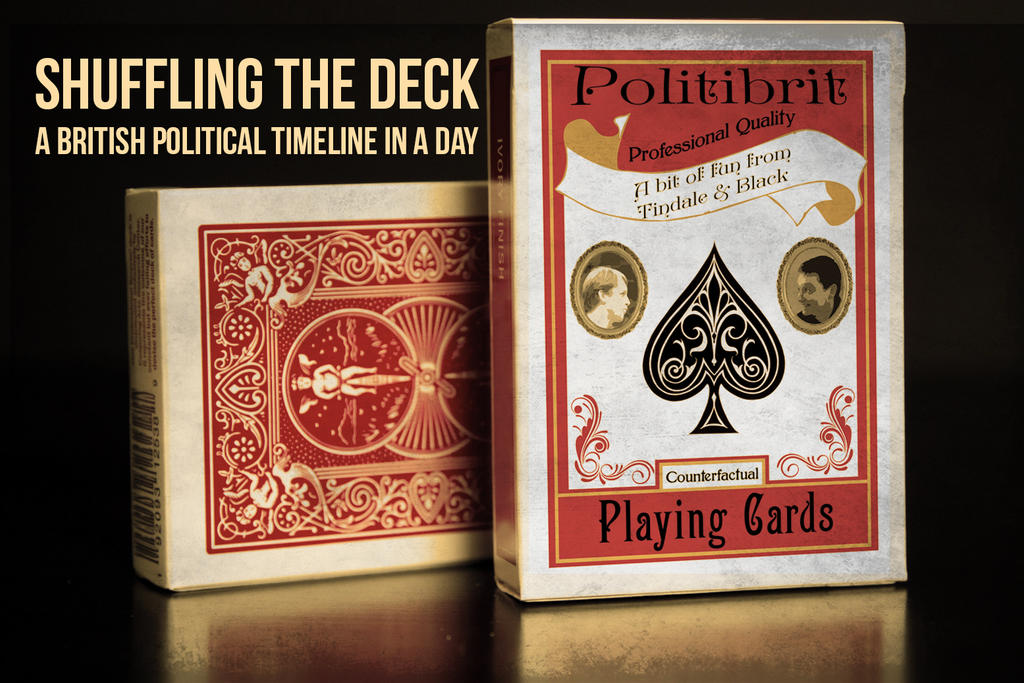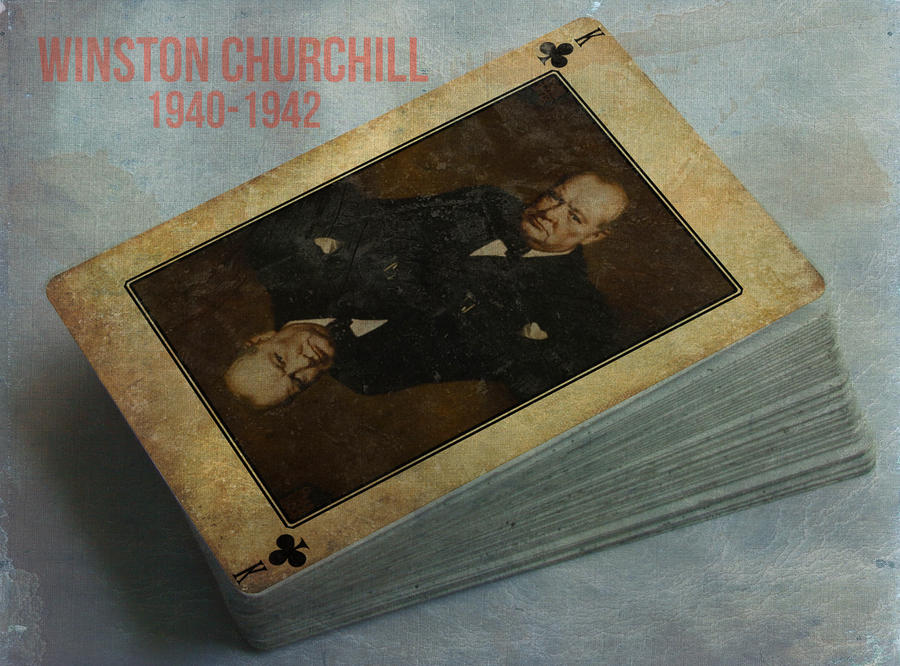Winston Leonard Spencer Churchill led one of the most extraordinary lives of the first half of the 20th century. Having served as a soldier, journalist and cabinet minister by the end of the First World War, he became a serial rebel - defecting from the Conservative Party, to the Liberals, and back again - becoming notorious for his stance on the Gold Standard, his ill-fated attempt to defeat the Ottoman Empire at Gallipoli, and even mooting the idea of using live ammunition against striking Welsh miners.
In what little spare time he had, Churchill was also an accomplished historian, writer and amateur artist.
A divisive figure in the governments of the 1920s, his actions as Chancellor and during the General Strike discredited him in the eyes of many working class Britons. The national governments of the early 1930s were also not friends to Churchill, who found himself marginalised as they marched unknowingly toward war. When Appeasement was outed as a catastrophic failure in 1939, Churchill was at last invited to return to the Cabinet by the ailing Neville Chamberlain.
Following the humiliation of the disastrous expedition to Narvik, in which the allied armies had been unable to prevent the fall of Norway to the armed forces of the Reich, it was Churchill who was invited by The King to form a Coalition Government - narrowly pipping the experienced, if tainted, Lord Halifax to the Premiership. Magnanimous in victory, and keen to keep the Conservative Party on side, he made sure to find a prominent seat in the Cabinet for Neville Chamberlain - the man he had just ousted.
Churchill quickly moved to protect the British Isles themselves, coming too late to save the Low Countries, France and even the Channel Islands, from Hitlerite Germany. In his welcoming speech to the Cabinet after moving into Downing Street, he famously stated
“I have nothing to offer but blood, toil, tears and sweat” - a phrase that would later be immortalised on his memorial in Westminster Abbey.
The Churchill years were a grim time for the Anti-Fascist movement - on all fronts, land, sea and air - Britain stood alone on the continent, whilst the Japanese Empire moved against the colonial powers in East Asia. In the darkest hour of the British Empire, it was to Winston Churchill that the public turned to, and in him, they found the assertive, defiant ‘Bulldog Spirit’ that epitomised the opening years of the most destructive war in history.
It was under Churchill - who had aggressively called for Home Defence and the promotion of early Radar systems whilst in exile on the backbenchers - that the Nazi menace was called to heel in the skies above the South Downs, it was under Churchill that the Soviet Union and the United States entered the war against Germany, and it was under Churchill that Britain’s cities endured the worst of the Blitz. In all of this, Churchill remained in London, directing the war effort (he also sat as Minister of Defence) and bilateral relations with other heads of government - as well as with President Roosevelt and Marshal Stalin.
As the year 1942 dawned, Churchill and the British public had more reason to be optimistic about the future of Europe than at any time since the invasion of Poland. Across the Channel, plans for an invasion of Great Britain had been shelved in the face of RAF intransigence, across the Atlantic, the United States had finally entered the war after the Japanese attack on Pearl Habour, whilst the Red Army had turned away Von Bock on the outskirts of Moscow.
With time, what world Churchill could have built in the post-war climate is matter of counterfactual speculation. Would he - as many assumed - have wilted in adjusting to a world where Britain had lost an Empire, but gained little else? Certainly, by 1942, there was little left of the firebrand radical that had helped to see in the Liberal Reforms of the Asquith years, nor was there a man who would have quietly gone into retirement. Churchill was a political creature, and at a New Years’ Eve reception at Chequers, he joked to the American Ambassador, John Gilbert Winard, that
“I shall only leave Downing Street feet first.”
This was to prove sadly prophetic. Ten months later, whilst inspecting a battalion on Salisbury Plain, a faulty shell detonated, killing six men outright (including the unfortunate Under-Secretary for War, the Lord Croft) as well as critically injuring Churchill himself. With medical technology still in comparative infancy, little could be done for the aging Prime Minister, and he expired shortly after noon on 26th October.
At his state funeral two weeks later (held with all possible pomp and ceremony, despite wartime rationing) - his successor; the young, brilliant and charismatic Foreign Secretary who had followed him into exile during the 1930s - eulogised for many.
“Winston Churchill was a man who epitomised the idea of England. In his leadership, he fought against the worst elements of humanity and paid with his life. However, whilst we come here today to mourn, we also come to celebrate the life and work of a public servant who defended those who could not stand up for themselves. The forces of Nazism have suffered a great defeat in North Africa - and the steel and shell that beat them back was foundered with the heart and sweat of the man who established the machinery required to defeat them.
It is to England that Winston Churchill was born, and it is to England that Winston Churchill will be remembered.
With this is our minds, it is also to Winston Churchill that the tide of history has finally begun to turn against the grim apparatus of Nazi rule. This is not the end, it is not even the beginning of the end, but it is - perhaps - the end of the beginning.”
As Anthony Eden dismounted the pulpit in Westminster Abbey, he was one of the few people in the great nave not to have tears in his eyes.
The Churchill Era was over, and the Eden Era had begun.
Today, Winston Churchill is immortalised as a courageous and selfless public servant. To be called a ‘Churchill’ is among the highest accolades in modern British politics. It conjures up a sense of foresight - thanks to Churchill’s stand against appeasement and its tragic vindication - and of tireless sacrifice. ‘A Churchillian exit’ is today a somewhat dark metaphor for a statesman’s death, resignation or retirement when the country needs him most.

